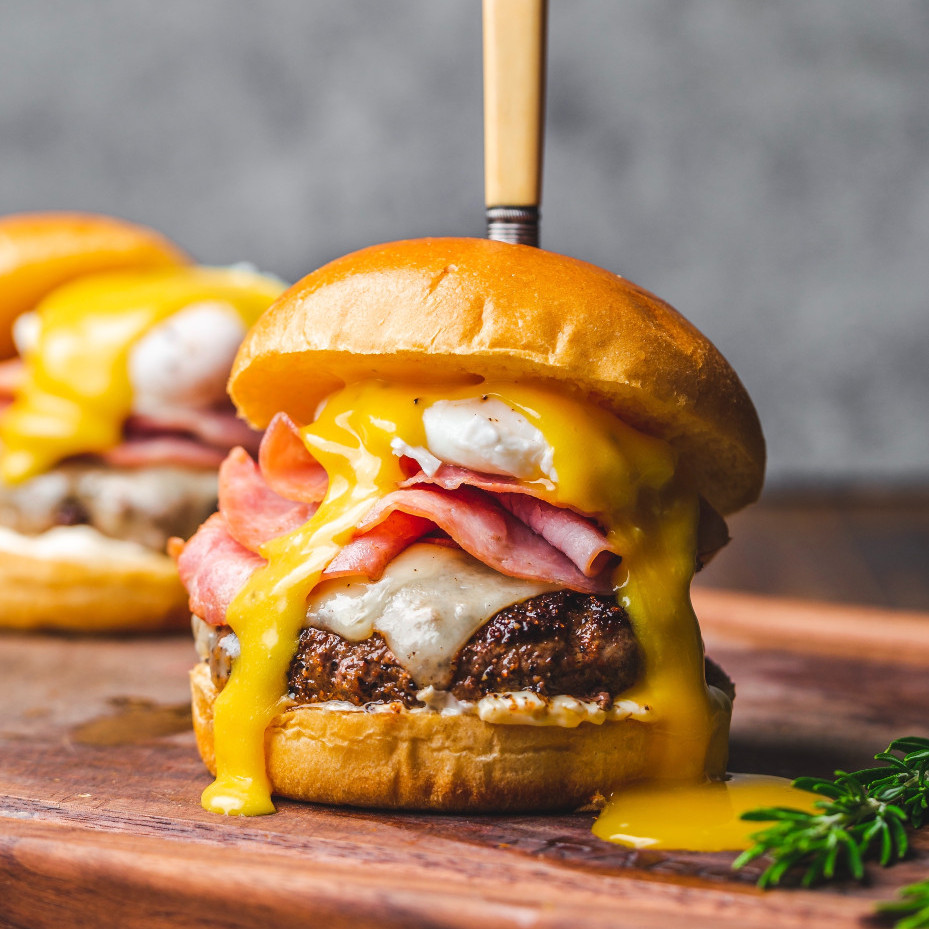- /
- Blog
- /
- The Landscape of Gluten Free in 2024
The last two decades have seen the gluten-free market expand ever upwards within the UK food industry. What were once considered relatively niche or specialist goods are now mainstream, with restaurants providing clearly labelled options for gluten free diners, and a boom in products on supermarket shelves.
Coeliac disease, wheat allergies and non-coeliac gluten sensitivity (NCGS) are being increasingly diagnosed, and with no way to alleviate symptoms other than to follow a gluten / wheat free diet for life, it’s no surprise that the food industry has responded to the size of the opportunity.
The Lay of the Land
According to research by Coeliac UK, coeliac disease affects one in 100 people in the UK, with a huge number still undiagnosed – an estimated 500,000 in the UK alone. You can develop the condition at any time and delayed diagnosis is common – it’s most frequently diagnosed in people aged 40-60.
According to Mintel’s 2023 report*, one in five UK consumers report avoidance of gluten or wheat in their household.
The gluten/wheat-free market has been on an upward trajectory, with sales reaching £498million in 2022. However high levels of food inflation were a large driver in this growth.
Perception of Gluten Free as Healthier
In today’s world where people are seeking out the healthiest products available, gluten free has achieved a general reputation for being the healthy option even amongst consumers without any sort of intolerance or coeliac condition. While it’s currently debated whether cutting out gluten is of benefit to you if you do not have an intolerance, it has helped to drive up the popularity of gluten free products.
Mintel found that health reasons were stated just as frequently as allergies/intolerance as a reason for avoiding wheat/gluten. Increased awareness around gut/digestive health is one of the partial drivers for this perception; according to Mintel research, nearly one in five (18%) people think limiting gluten/wheat is good for digestive health.
Those choosing gluten free products for non-medical reasons are more likely to switch buying behaviour away from gluten free products when they become cost prohibitive. Preference for gluten/wheat free foods is heavily skewed towards younger demographics. This is in line with younger people being more likely to want to keep up with the latest healthy eating trends.
While plant-based takes more limelight as the healthy diet du jour, gluten free stands to fall a little out of favour as a lifestyle choice. However, as households become less price squeezed, we’re likely to see gluten free bounce back.
Recipe Adaptations

When we think of gluten free it can be tempting to think of shelves of specialist products, but in today’s landscape it’s as much about adapting existing recipes so as not to reduce the size of your market as it is to create a brand-new product targeted specifically at the gluten free consumer.
Just as unnecessary hidden dairy is being removed from recipes to the delight of vegans and the lactose intolerant, wheat is being removed where it can be switched for alternative ingredients, opening up those products to more buyers. Keen-eyed, label-scouring groups on Facebook and Instagram share ‘accidentally’ gluten free products from outside the gluten free aisle to audiences of those on the lookout for safe convenience foods. Key products here are burgers and sausages that might once have used wheat-based binders, and crunchy batter and breadcrumb coatings for chicken, fish and vegetables.
Bowman Ingredients pioneered the production of gluten-free crumb, opening the UK’s first gluten free factory back in 2016.
Shift Towards Nutrition
Early gluten free products sometimes compensated for the lack of wheat with additional sugar, fat and salt to help create an appealing taste experience. Mintel reports that one in four (26%) people agree that gluten-/wheat-free products are too processed. Now, in response, there is a shift to make cleaner label products perceived as less processed – conveying a shorter and simpler list of ingredients is going to be a key comms strategy to win over buyers.
Ancient grains and seeds are one avenue being explored, from quinoa, sorghum, teff and buckwheat to chia, these ingredients can provide more fibre, protein and other nutrients compared to their starchier counterparts. The Paleo movement is increasing interest in grain-free flours such as chickpea, mung bean, black bean, lentil, coconut and almond.
Brands are also looking to ensure their gluten free products have as broad an appeal as possible by catering to dairy, egg and nut and allergies, low FODMAP diets, or making them sugar and preservative free. Clear labelling will be imperative in conveying these USPs, alongside official gluten-free certification for shopper confidence.
Plant Based

If the above sounds like a familiar story, it might be because the plant-based industry is facing a similar challenge in terms of simplifying ingredient lists, boosting nutrition and turning around reputations for being too processed. But what about the axis of plant based and gluten free?
This is an avenue set for growth and presents a challenge for plant-based manufacturers. Vital Wheat Gluten (VWG) has long been a primary ingredient to give a meat-like texture to plant-based meat alternatives. This is clearly off the table for coeliac sufferers, meaning an increased reliance on soy, pea protein and newer rising ingredients.
For those choosing to follow particular diets for health and environmental reasons, the combination of plant based and gluten free could be the ultimate diet.
Functional Foods
We’ve written about the rise of functional foods before as one of today’s biggest food trends. In the gluten free consumer, we have an audience we know suffers from digestive problems, so it makes perfect sense to go one step further and build ingredients with benefits into gluten-free foods, whether that be prebiotics, probiotics, immunity boosters or inflammation soothers, designed to help to heal the gut. While these are not likely to be budget products, there is an opportunity at luxury end of the market.
Little Treat Culture

We know that consumers have less disposable income right now, and that spending sacrifices are being made. This is affecting retail and F&B trades across the board, but where people might not be treating themselves to new clothes and meals out quite so frequently, ‘little treat culture’ has surfaced in its place (care of TikTok, of course). Life is tough for people right now; splurging is a thing of the past, and small affordable pleasures have become the new mood-boosting pick-me up, whether it’s a coffee, a cookie, a 6 box of nuggets or a new lipstick. Brands need to make sure that gluten free shoppers have the choices available to them when they’re in need of that little something.
Future Flour
Now here’s an avenue that you might not expect to be an option in the world of gluten free food – wheat. Scientists from Kansas State University’s Wheat Genetics Resource Centre and USDA’s Agricultural Resource Service, with support from Kansas Wheat are making strides in developing a commercially available wheat that could be safer for coeliac sufferers, especially those with more minor intolerances. Using CRISPR-Cas9 gene editing they have reduced the toxicity of gluten in a line of wheat. It will be a long road to market, but one that has the potential to completely transform the gluten free industry.
Set to Rise and Rise

One thing is clear, and that’s that the gluten free market is not going away any time soon. As more people begin to get diagnosed, whether from an early age or in later life, the market is only going to increase. And as gluten free products become ever more nutritious and affordable, their appeal is only going to broaden further, whether to plant based eaters seeking additional protein or simply those looking to make healthy eating choices.
We can’t wait to see what innovations come next – and we’d love to work with you on your project.
*Mintel ‘Attitudes towards Gluten-/Wheat-Free Food UK, 2023’








